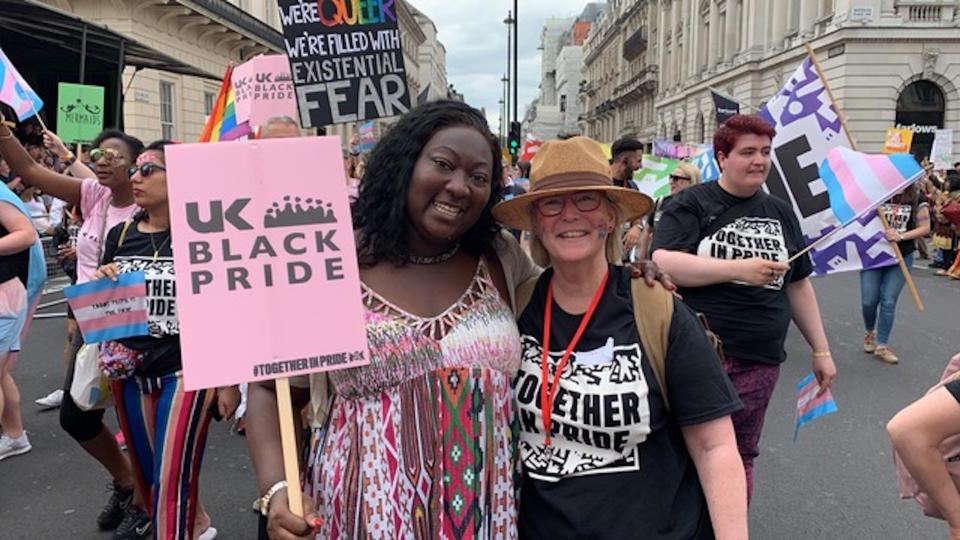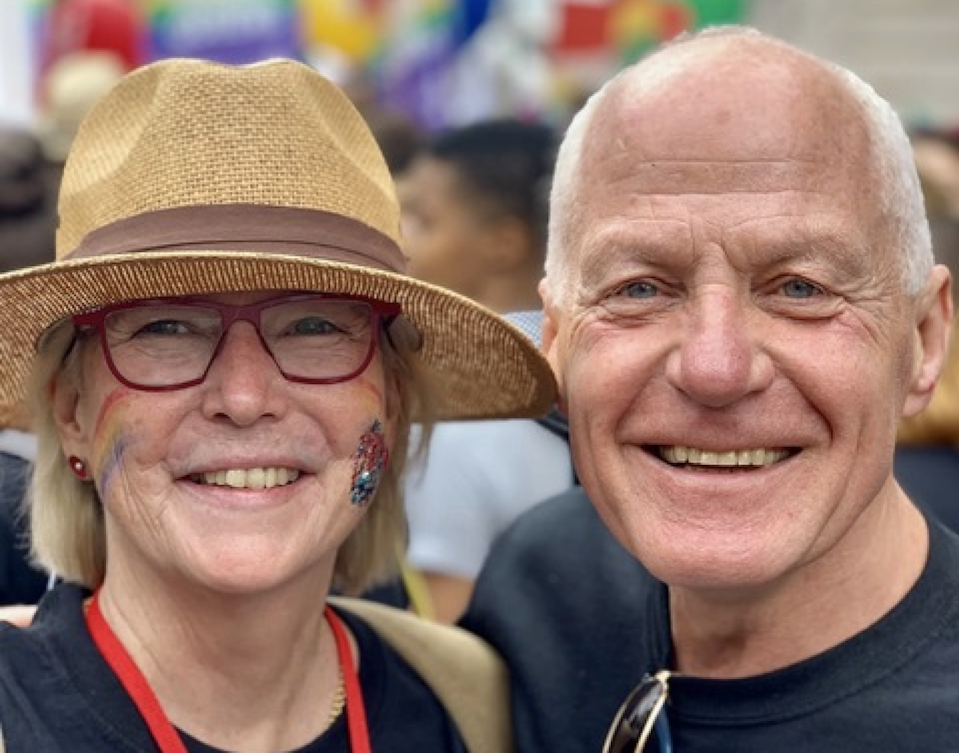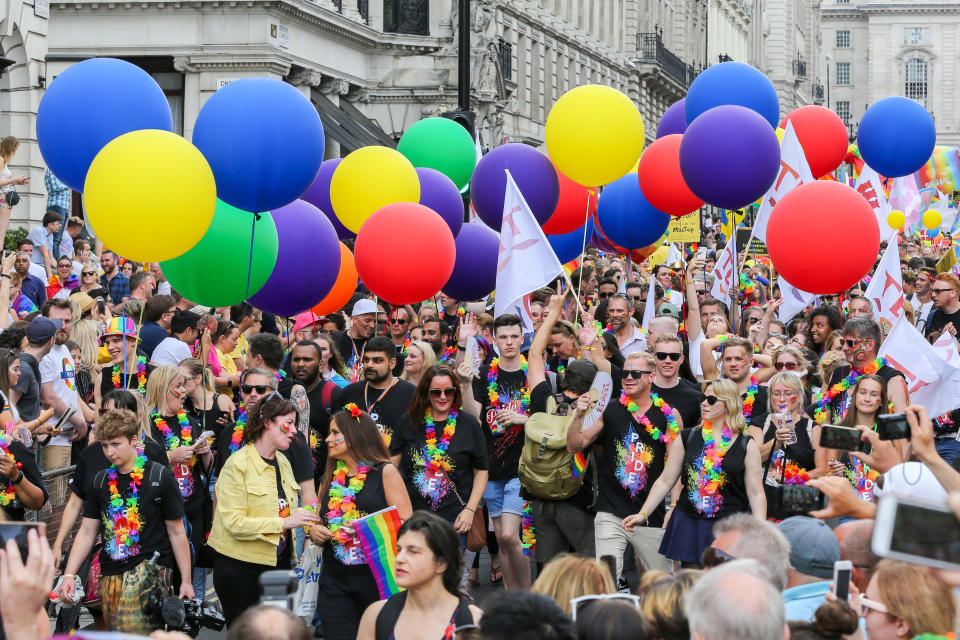Stonewall chair: Why corporates are essential at Pride
Pride is a worldwide activation that celebrates the self-affirmation, dignity, equality, and increased visibility of lesbian, gay, bisexual, and transgender people. Taking place in cities across the world, Pride parades are more than just celebratory moments — they are activist marches that aim to break down stigma and champion those who don’t always have a voice.
Jan Gooding, the chair of LGBTQ+ rights charity Stonewall, sat down with Yahoo Finance UK for its premium show Global Change Agents with Lianna Brinded and talked about her career but also the importance of Pride.
She emphasised that Pride is “not a party, it’s really political” and getting influential organisations and people involved are essential to changing society for the better.
“It’s very unfair that corporates are singled out — corporates employ a lot of people and have a lot of customers. We absolutely want corporates at Pride and it’s not about having their money but their allyship — if I can put it that way,” she told Yahoo Finance UK.

This year marked the 50th anniversary of the Stonewall riots, which has been regarded as the birthplace for the Pride movement and is the inspiration for the Stonewall charity (which also celebrated its 30th anniversary this year).
As the movement has grown, with 30,000 people marching in London alone, it has also given rise to critics saying that the parades have become commercialised and have allowed “pink washing” — corporates using it as marketing events.
But Gooding hit back at criticism and pointed out that allyship is important and for people not to forget why the parades exist.
“If Barclays, for example, comes and says they want to be part of Pride then that’s really meaningful. But I get concerned when [Pride] is seen as just a party. It’s not a party, it’s really political, and every time we march in London, you’re marching with people from all over the world who can’t march,” she said.

“You’re marching with people where it is still a criminal offence to be gay. You’re marching with people in London that if you go back and discover they were gay, you’d be stoned to death. So what sits underneath is still political and is literally pain and death at the heart of it. What we have to get right is a delicate balance between brands, corporates, and citizens being there, celebrating who they really are and it is a day of people being out when there were times when they were not able to be.”
Currently:
72 countries criminalise same-sex relationships, and 45 of these apply that law to women as well as men.
8 countries either allow the death penalty or evidence of its existence occurs
In more than half the world LGBT people may not be protected from discrimination by workplace law
25% of the world’s population believes that being LGBT should be a crime
Gooding highlighted how a lot has to be done for true inclusion and understanding of the LGBTQ+ community across the world, and even talked about her own experiences.
“I think twice about holding hands or showing affection which is odd because I was married for 16 years never occurred to me to be undemonstrative to my husband. But I sometimes think about it when I’m with my partner,” she said.

“What we ask of brands is please come, you’re absolutely welcome, you’re not just wanted for your money, you’re wanted because we need your allyship as it makes us feel safer knowing that big companies are on our side.
“But please be thoughtful and what are you really doing for the LGBT people that you work in your organisation. So if there is a big gap from turning up at Pride and the real experience of your workforce — it’s a big problem. And finally how can you use your strength which companies have to help change the situation in other parts of the world where people are really suffering.”
Latest statistics from Gay in Britain (2013) and Engendered Penalities (2007) show that 19% of LGBTQ+ employees have experienced verbal bullying from colleagues, customers or service users because of their sexual orientation in the last five years.
One in eight LGBTQ+ employees would not feel confident reporting homophobic bullying in their workplace and over 26% are not at all open to colleagues about their sexual orientation.
Don’t forget to check out the full interview where Gooding also discussed:
Her time working for ad agency Ted Bates, inspiration for ‘Mad Men’
How her worst job led to opportunities for a fulfilling career
Navigating your career when you made a mistake at the start
Why there is no such thing as ‘meritocracy’
How she overcame sexism, ageism, and relentless challenges during her career
What makes a great leader
What challenges the LGBT+ community faces into 2020 and beyond
Global Change Agents with Lianna Brinded explores the stories of some of the most inspirational women across business, tech, and academia. Catch up on all the latest episodes here.

 Yahoo Finance
Yahoo Finance 
